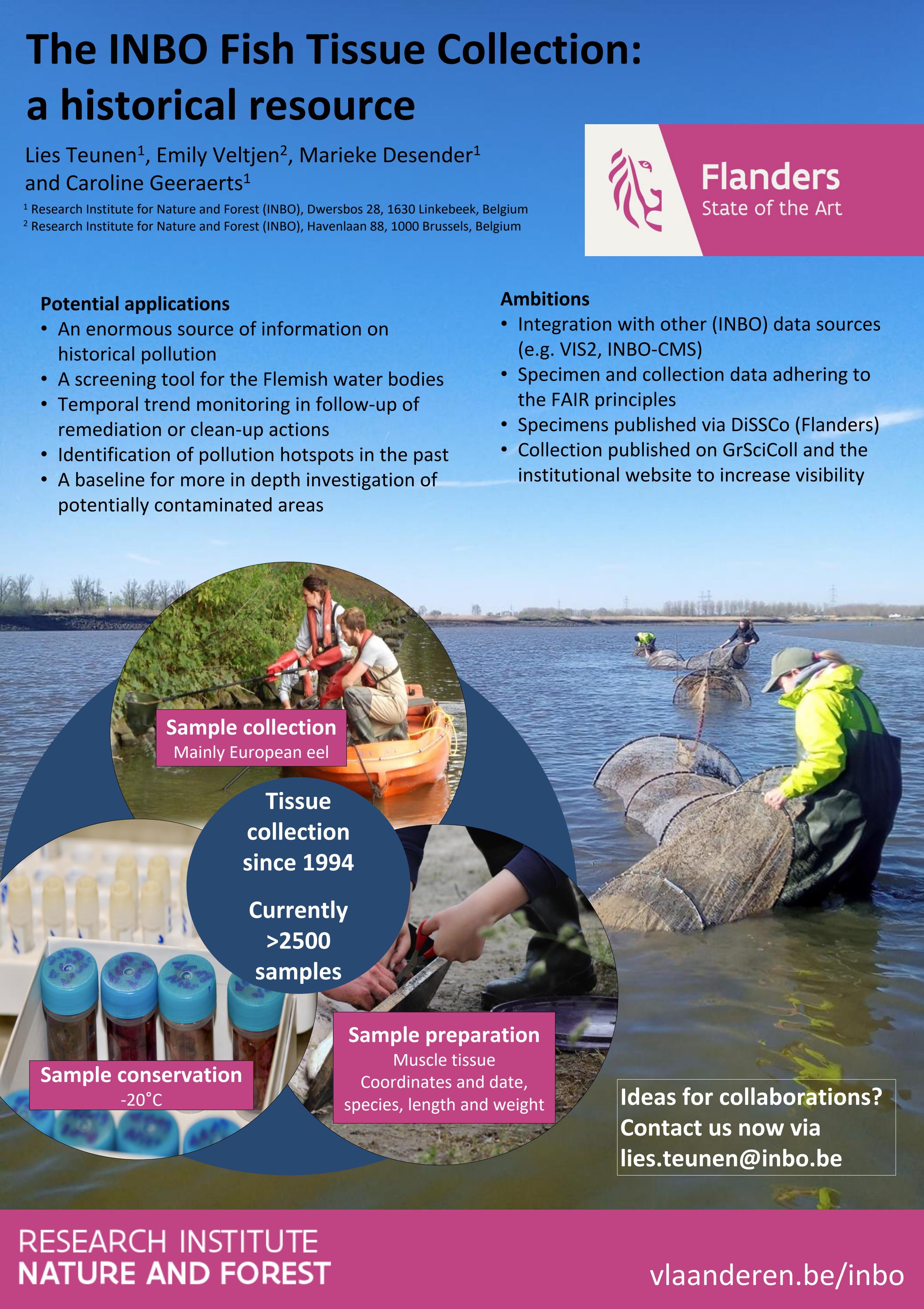The INBO Fish Tissue Collection: a historical resource
Details
| Aantal pagina's | 1 |
|---|---|
| Type | Poster |
| Categorie | Onderzoek |
| Taal | Engels |
Bibtex
@misc{57abafe4-d6b1-4b53-aa26-3c47299477de,
title = "The INBO Fish Tissue Collection: a historical resource",
abstract = "The Research Institute for Nature and Forest (INBO) is an independent research institute of the Flemish Government that collects valuable Natural Science objects which can be used for applied scientific biodiversity research. A selection of these objects is archived as the INBO collection for the purposes of validation and reuse. This collection is currently divided in eight subcollections according to specific research activity, workflows and research teams. The INBO Fish Tissue Collection is one of the INBO subcollections that contains frozen (-20°C) freshwater fish samples (mainly muscle tissue of European eel Anguilla anguilla) collected since 2000. For each specimen locality (X,Y coordinates and date), species, length and weight is documented. This collection contains, amongst other potential data, an enormous source of information on historical pollution. Therefore, it can be used as a screening tool for the Flemish water bodies or for temporal trend monitoring in follow-up of remediation or clean-up actions. This allows for the identification of pollution hotspots in the past and can serve as a baseline for more in depth investigation of potentially contaminated areas. Previously, the INBO Fish Tissue Collection has been successfully implemented to study PFAS in 'historical' eel samples. Subsequent time trend analysis shows decreasing trends in PFAS concentrations for multiple compounds. Furthermore, locations of high concern could be identified. In the coming years, there are plans to better integrate this collection with other data sources and ensure it adheres to the FAIR principles (Findable, Accessible, Interoperable and Reusable) by connecting it to the DiSSCo (Distributed System of Scientific Collections) (Flanders) infrastructure. The collection itself will be published on GrSciColl and the institutional website to increase visibility, while the specimen data will be published on DiSSCo. The main aim is to promote use of, and collaboration with, the INBO Fish Tissue Collection to accelerate progress in pollution research. We encourage researchers not to wait until the data is published to start a collaboration.",
author = "Lies Teunen and Emily Veltjen and Marieke Desender and Caroline Geeraerts",
year = "2025",
month = mei,
day = "12",
doi = "",
language = "Nederlands",
publisher = "Instituut voor Natuur- en Bosonderzoek",
address = "België,
type = "Other"
}

